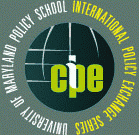Cash Transfers and Guaranteed Minimum Income Programs:
Research, Evaluation, and Policy
Prague, Czech Republic
September 9-10, 2024

-
“A Review of Exclusion Errors in Cash Transfer Programs Across Mexico, Brazil, and Colombia”
Santiago Munevar Salazar, American Institutes for Research
Background. Despite years of effort, cash transfer programs suffer from exclusion errors, or failures to reach the poorest, especially the most discriminated people.
Objective. The objective of this paper is to examine the evidence regarding exclusion errors and equity issues in major cash transfer programs in Mexico, Brazil, and Colombia. Specifically, the review seeks to characterize the targeting mechanisms used in these programs, identify the types and quantify the magnitude of exclusion errors, understand the causes contributing to these errors, explore effective approaches and strategies for reducing exclusion errors, and determine gaps in the literature that require further research. The review is part of a larger mixed-methods study investigating how cash transfer programs can reduce exclusion of the poorest and most discriminated groups, especially those with intersecting identities.
Methodology. The methodology, designed by American Institutes for Research (AIR), involved defining literature review questions, inclusion and exclusion criteria, conducting searches across databases, and using standardized tools for study selection, data extraction, and quality assessment. Three local universities carried out country-specific literature reviews following AIR's methodology - the Universidad Autónoma Metropolitana (UAM) in Mexico also conducted a regional literature review, while the Fundação Dom Cabral in Brazil and Universidad de los Andes in Colombia focused on their national contexts. AIR then coordinated the integration of findings and performed a comparative analysis across the three countries. The review examines a wide range of sources, including academic articles, books, reports, and government publications, published from January 2000 to May 2024. The search strategy included databases such as JSTOR, IBSS, EconLit, Scopus, and Web of Science, as well as regional databases like SciELO.
Preliminary findings. The review findings suggest that yes, cash transfer programs across Mexico, Brazil, and Colombia are indeed leaving many of the poorest behind due to significant exclusion errors. While these programs have helped reduce poverty overall, they are failing to reach some of the most disadvantaged and marginalized groups, including those with intersecting identities. Ethnic and indigenous minorities, women, persons with disabilities, and the geographically isolated poor are disproportionately affected by exclusion from these cash transfer initiatives.
Common causes underlying this exclusion span program design flaws that fail to account for intersectionality, implementation challenges like outdated registries or complex requirements, and a lack of approaches specifically tailored to reach the most vulnerable intersectional groups. However, the literature also highlights some promising practices that could help get cash transfers to those being left behind, such as deeply engaging affected communities, applying explicit intersectional lenses throughout program cycles, and combining quantitative and qualitative methods to better identify and target those facing overlapping disadvantages.
Contribution / value. This literature review contributes to a better understanding of exclusion errors in cash transfer programs and provides valuable insights for policymakers, practitioners, and researchers working in the field of social policy and poverty reduction, especially for those facing overlapping, intersecting disadvantages.

